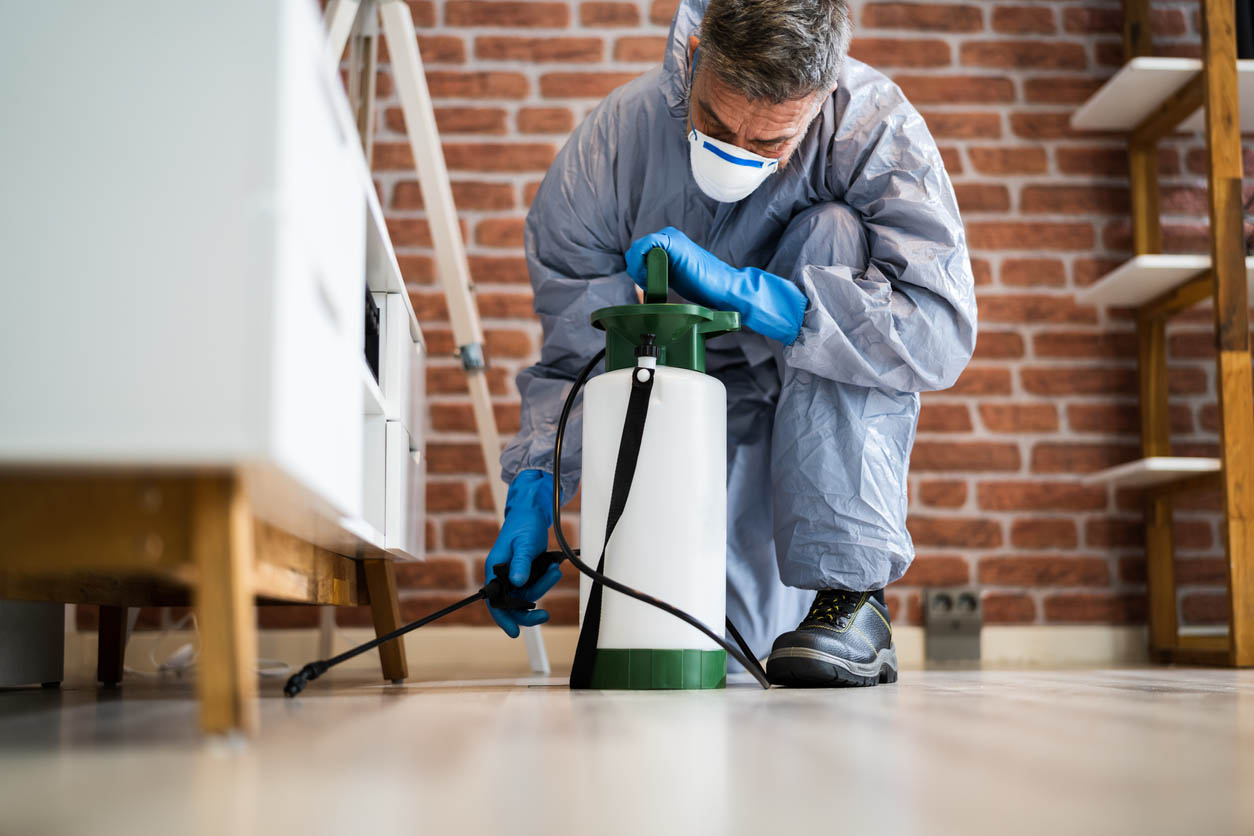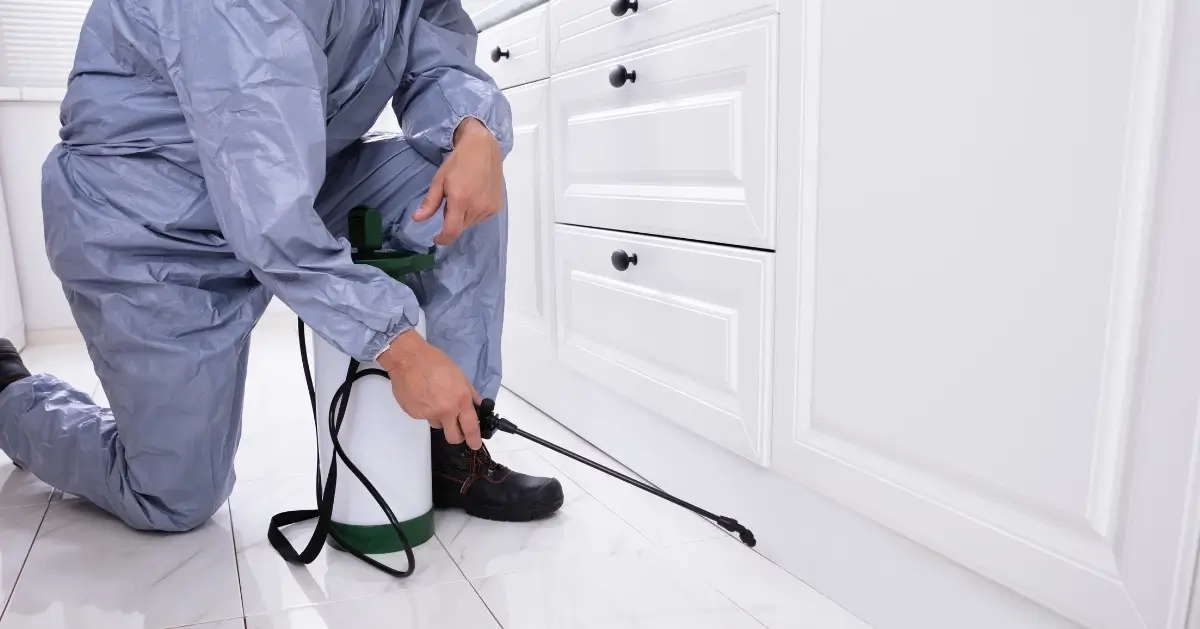Safe and Efficient Chicago Pest Control for Restaurants: Protect Your Company from Pests
Checking Out Various Methods and Techniques for Comprehensive Pest Control in Residential Spaces
The landscape of pest control in household areas has actually progressed considerably, necessitating a comprehensive understanding of numerous methods that can be employed for reliable management. Conventional chemical therapies, while effective, are progressively being enhanced by environment-friendly alternatives and Integrated Bug Management (IPM) methods.
Understanding Parasite Control Basics
Efficient pest control is crucial for preserving a safe and healthy and balanced living setting. Comprehending the fundamentals of parasite control involves acknowledging the kinds of parasites that commonly invade domestic areas, the prospective threats they posture, and the importance of safety nets. Usual house parasites consist of rodents, insects, and other unwanted creatures that can compromise hygiene, damage property, and trigger health and wellness issues.
A critical primary step in pest control is identifying the specific pests present. This can involve inspecting locations such as attic rooms, cellars, and kitchens, where parasites are most likely to prosper. When recognized, it is critical to recognize their routines, breeding cycles, and chosen environments, which can educate appropriate control strategies.
Preventive actions are essential to efficient pest management. These include securing entrance factors, preserving cleanliness, and lowering mess to get rid of hiding areas. Furthermore, proper food storage space and waste monitoring can significantly decrease the attraction of a home for insects.

Typical Chemical Treatments
Amongst the various parasite control methods, standard chemical therapies have long been used to address invasions in property spaces. These treatments usually entail the application of chemical pesticides created to remove pests such as pests, rodents, and other undesirable organisms. The effectiveness of these chemicals can differ, relying on the kind of insect, the formula of the chemical, and the technique of application.
Typical courses of standard chemical therapies consist of pesticides, rodenticides, herbicides, and fungicides, each tailored to combat certain pests. Pesticides, for instance, might target ants, roaches, or termites, while rodenticides are specifically formulated to regulate rodent populaces. These chemicals are commonly readily available in numerous forms, consisting of sprays, granules, and lures, permitting home owners versatility in application.
In spite of their performance, conventional chemical therapies elevate concerns pertaining to possible poisoning to human beings, family pets, and beneficial microorganisms in the setting. For that reason, it is crucial for home owners to very carefully adhere to application guidelines and safety and security precautions to decrease risks. Integrated Parasite Management (IPM) strategies can enhance these treatments, guaranteeing a much more all natural method to pest control while maximizing efficacy and safety and security in domestic settings.
Eco-Friendly Pest Control Options
Environmentally friendly insect control choices are obtaining popularity as house owners look for more secure and more sustainable options to conventional chemical therapies. These methods prioritize the health and wellness of both locals and the environment, lessening the influence of parasite control methods.
One widely embraced environment-friendly method is using natural repellents derived from necessary oils, such as peppermint and citronella. These oils not just hinder pests but additionally give positive scents for interior rooms. In addition, diatomaceous planet, a powder made from fossilized algae, acts as an all-natural insecticide by damaging the exoskeletons of insects upon contact, causing dehydration.
One more effective technique includes advertising biodiversity in lawns and gardens. Presenting useful pests, such as lacewings and ladybugs, can naturally control pest populations (Preventative pest control services Chicago). Furthermore, using catches made from biodegradable products can help catch and get rid of bugs without triggering injury to the community
Routine maintenance, such as sealing entrance factors and proper sanitation, more enhances the effectiveness of environmentally friendly insect control. Home owners can take proactive steps to stop problems, making certain an extra sustainable living setting while successfully managing pest-related concerns.
Integrated Parasite Monitoring Approaches
Applying integrated bug administration (IPM) methods offers a thorough approach to visit this page pest control that stresses avoidance and long-lasting solutions. IPM integrates several tactics, concentrating on comprehending pest habits, life cycles, and eco-friendly characteristics to lessen insect populaces efficiently. This complex strategy prioritizes non-chemical techniques, such as biological control, habitat control, and cultural methods, to lower dependence on pesticides.
A fundamental element of IPM is keeping an eye on and identifying parasites precisely. When intervention is needed, this involves normal examinations and the facility of activity limits to determine. By comprehending the specific insects influencing residential settings, targeted treatments can be used, reducing the possibility of unnecessary pesticide applications.
An additional vital part of IPM is enlightening house owners concerning the significance of cleanliness and maintenance practices. By promoting an environment that prevents parasite invasions-- such as sealing entry factors and taking care of wetness-- homeowners can dramatically alleviate the danger of insect problems. Additionally, when chemical controls are regarded required, IPM supporters for making use of the least harmful choices to decrease ecological influence. Through these strategies, IPM not only addresses present parasite issues but also promotes sustainable methods that promote long-term bug monitoring success.
Preventative Steps for House
To fend off potential pest infestations, house owners must embrace a proactive approach that emphasizes preventative steps. This starts with preserving a orderly and clean space, as mess and food debris bring in pests. pest control chicago llc. On a regular basis see this page vacuuming, sweeping, and cleaning down surfaces can substantially decrease the risk of infestations
Furthermore, sealing access factors is critical. House owners ought to evaluate windows, doors, and foundation cracks for voids that can allow bugs accessibility to the home. Using caulk and climate removing can efficiently obstruct these entranceways.
Proper food storage is an additional crucial step. Saving food in closed containers and without delay cleansing up crumbs or spills aids prevent rats and insects.
Additionally, managing outdoor atmospheres can stop parasites from encroaching on property spaces. Property owners need to make sure that water drainage systems are functioning well, and landscaping is maintained clean. Cutting hedges and trees away from your house and removing standing water can additionally diminish insect environments.

Conclusion
In verdict, reliable parasite control in domestic spaces demands a diverse method that combines standard chemical treatments with green techniques and Integrated Parasite Administration strategies. By focusing on preventative measures, such as maintaining tidiness and sealing entrance points, homeowners can substantially lower parasite incidents. Normal surveillance and exact insect recognition additionally improve monitoring Preventative pest control services Chicago initiatives. Ultimately, a well balanced method that incorporates natural repellents and least poisonous chemicals cultivates a healthy and balanced and safe living setting while attending to pest-related obstacles.
Recognizing the basics of insect control involves identifying the types of parasites that generally attack property spaces, the possible risks they position, and the importance of preventative measures.A critical initial action in insect control is determining the particular bugs existing. Integrated Insect Monitoring (IPM) methods can complement these treatments, guaranteeing an extra alternative strategy to pest control while taking full advantage of efficacy and security in property settings.
Implementing integrated parasite monitoring (IPM) approaches provides a thorough strategy to pest control that stresses avoidance and long-term options.In verdict, efficient insect control in property areas necessitates a multifaceted strategy that combines typical chemical treatments with environment-friendly methods and Integrated Pest Monitoring strategies.